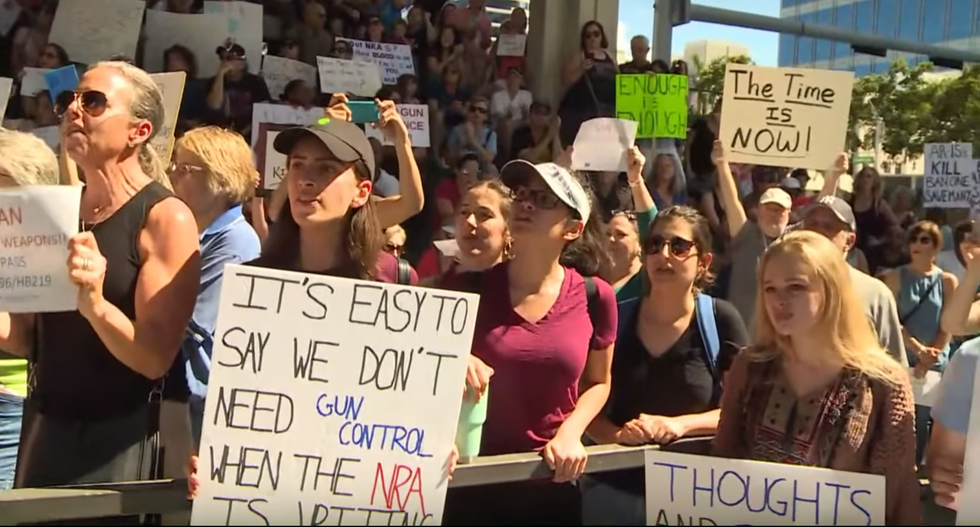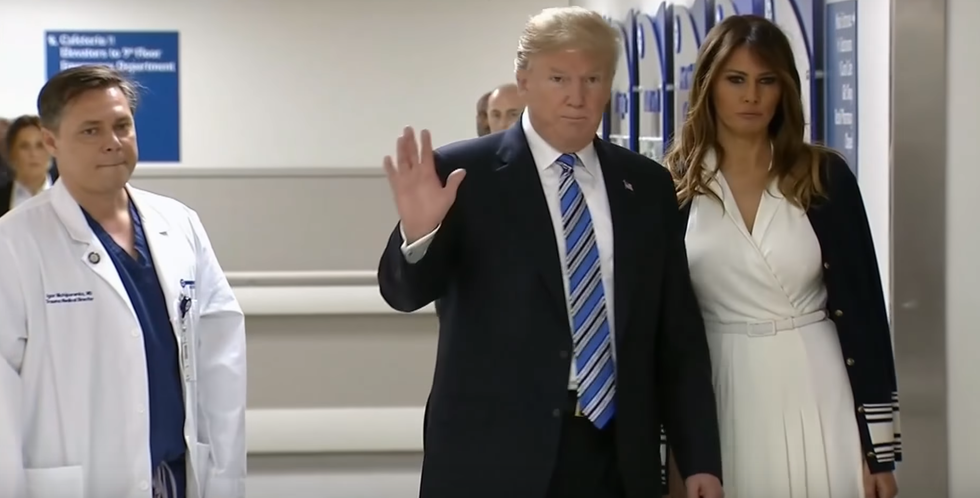If you feel like you’ve been hearing the term “mental illness” thrown around more than usual in the past couple of weeks, it’s no coincidence; it’s because the United States just witnessed another mass shooting.
That makes sense to you, right? Yeah, me neither.
Mass media and news sources have a great tendency to talk about mental illness in two very specific ways: first, not at all, but when it is mentioned, it is only done so in the context of a mass shooting as a reason for unthinkable gun violence.
One of the only times the media gives any attention to mental health is immediately following tragedies like mass shootings, using mental illness as a scapegoat for gun violence in order to direct the conversation away from gun control. In reality, mentally ill people are much more likely to be the victim of violence than the perpetrators. This false connection between gun violence and mental illness perpetuated by the media is the perfect scapegoat for media outlets and politicians that want nothing more than the phrase “gun control” to be dropped forever.
Creators of national media immediately jump to mental illness as an explanation for gun violence because it is seemingly the easiest and most comprehensible explanation. This also tends to be a safe bet because it targets a group of the population that people in power tend to view as other and unworthy.
This assumption is, of course, ridiculous; mental illness does not discriminate based on class or socioeconomic status. And as stated earlier, mentally ill persons are far more likely to be the victims of violence than the perpetrators.
One wouldn’t guess this based on the national conversation we keep rehashing; in a 2014 study, 400 news stories about mental illness were randomly chosen and analyzed. 55 percent of the stories analyzed were focused on violence, followed by stories about any type of treatment for mental illness (47 percent).
Only 14 percent of the stories described successful treatment for or recovery from mental illness. However, according to the American Journal of Public Health, fewer than 5 percent of a study of 120,000 gun-related killings were perpetrated by people with mental illness.
The motives behind this misrepresentation by the national media become very clear: because the people in power in our society appear to be put together and in control – the apparent opposite of being mentally ill – they are protected when the blame is put on mental illness and not gun control, which would hurt politicians and large corporations involved in the gun industry and supported by lobbyists.
Former presidential candidates like Donald Trump would not have been endorsed by the NRA and would not have been as vehemently supported by the Republican Party had he focused on gun control following the 2016 San Bernardino shooting as opposed to saying, “This isn’t guns; this is about, really, mental illness."
Using mental illness as the scapegoat in the wake of a mass shooting stops any real progress from being made toward improving the situation of gun violence because the fact is, mental illness is not the problem; but as long as we keep talking like it is, it’s all we will ever be able to focus on – and we will never reach a successful solution.
Perhaps more dishearteningly, when reporters and politicians do use mental illness as a way to direct the conversation away from gun control, they don’t follow up on their use of it as a scapegoat. Another 2016 presidential candidate, Mike Huckabee, commented on the 2016 San Bernardino shooting by saying, “Do we need to do a better job in mental health? You bet we do,” adding that we don’t need fewer guns, but fewer guns in the hands of “crazy people.”
But upon further investigation, Mike Huckabee’s state, Arkansas, received a grade of D- on their mental health care system while he was in office.
The least we could do is follow through on what we say about an issue while we’re using it to ignore the real issue at hand. This lack of follow up and work towards tackling the issue of mental illness reveals that even the people in the public sphere who claim that mental illness is the reason for gun violence know that it is not the case.
When the media creates and perpetuates a false connection between mental illness and gun violence, the general public, as well as politicians in the public sphere, get to avoid focusing on issues of gun control. If we as a country want to make any kind of progress towards eliminating the most destructive issues of our time, we must start being more careful about not only the words we use but how and when we use them – and we must start holding the national media and those who speak for us accountable as well.


















